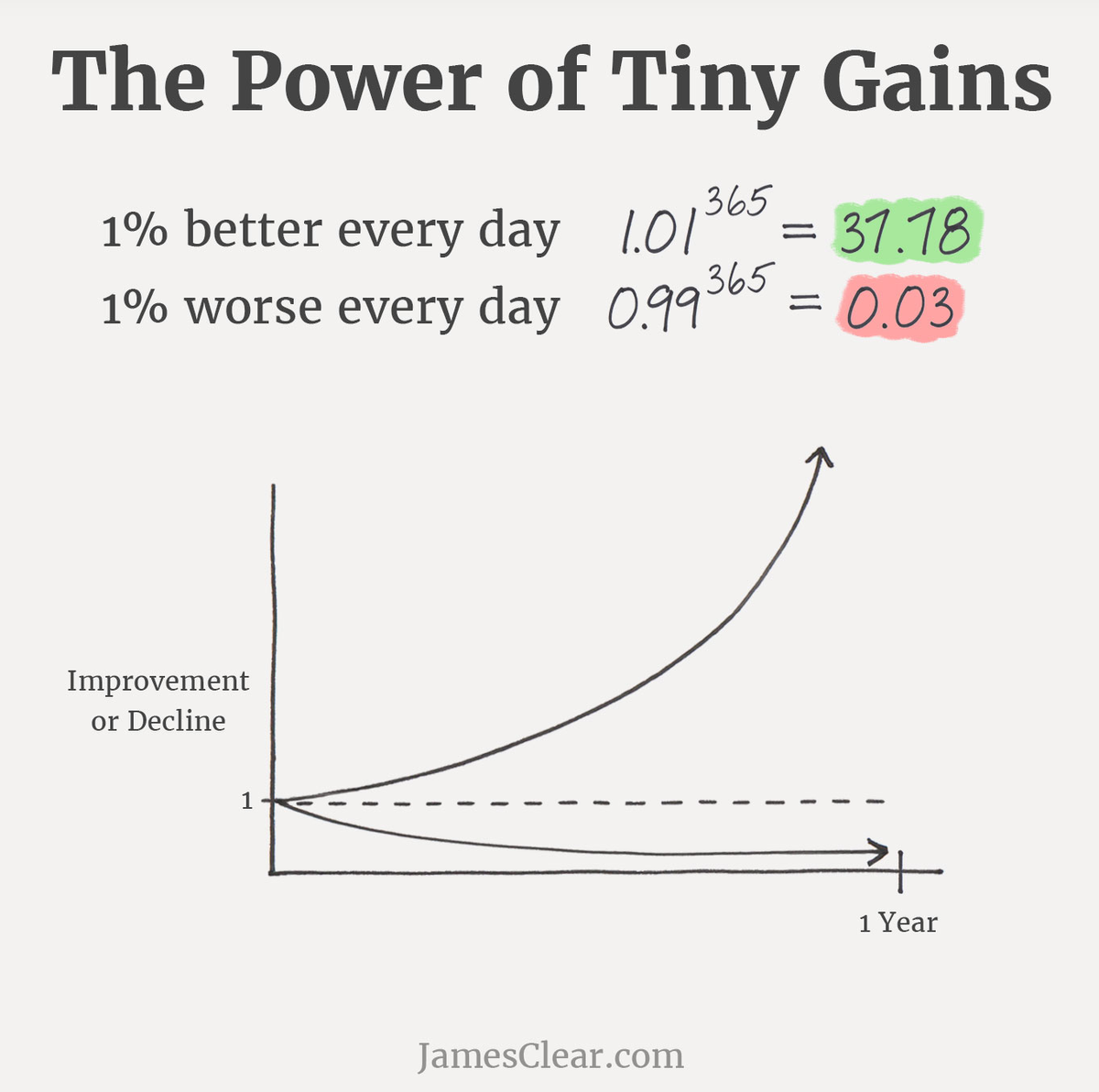From the Director of Pedagogy and Innovation

The Power of Tiny Gains
As we end Week 5 today, we are feeling the thickness of school life and the huge number of things that comprise a school term. For many of us, life is busy, regardless of the stage we are at. We are so busy doing that we often do not prioritise the time we need to take stock, reflect on what is working and what is not. We cannot squeeze in the minutes to work out what needs tweaking, what is going well, or we should doubling-down on.
The phrase ‘work smarter hot harder’ has been around for a long time now but the simplicity of this still rings true: By cutting out the actions that do not make a difference we are able to generate more time and do things that matter more.
The author of Atomic Habits, James Clear, argues that by focusing on getting 1% better each day we are going to be 37 times better off one year from now. When we focus on the small incremental changes it can feel like we are not really going anywhere and there needs to be large, visible outcomes to be worth the effort. Often, we put pressure on ourselves to make radical changes that people will notice and talk about. However, if we just go for that 1% each day which we will not notice it in the short term, when we look back we will see a marked difference. The compounding effect of making slightly better decisions each day is slow to see at first, as the daily situation does not seem to change very much. However, over time these slight advancements (or lack of) accumulate resulting in a noticeable and significant disparity between individuals who do and do not make marginally better decisions regularly.
Progress often hides behind boring, mundane and often unrecognised patterns of behavior. Whether it is flossing your teeth, having a good breakfast or saving documents properly on your computer, we can pull back time and improve output by doing little things well.
Recently, my tutor group were prepping for their assessment block. The way that some of them were able to chip away at revision in a consistent, calm and strategic way was a reminder this. It wasn’t anything flash they were doing, just doing more of what already works. The panicked rush of day-before cramming was there for a couple on them, but in reality they would have been fine without it.
More on tiny gains and powerful habits next week.
Mr Chris Sanders
Director of Pedagogy and Innovation
